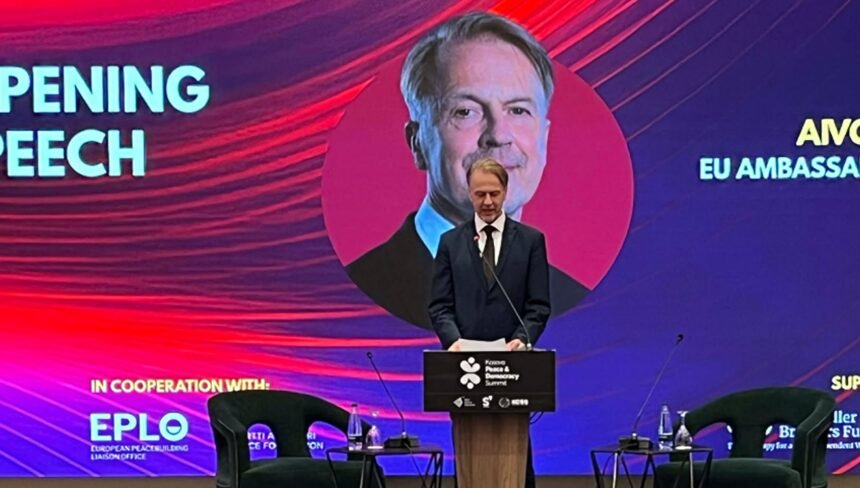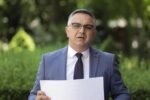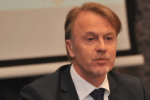The European Union Ambassador to Kosovo, Aivo Orav, stated that Kosovo is in urgent need of a stable government and emphasized the importance of the EU-facilitated dialogue between Prishtina and Belgrade.
He made these remarks during the Kosovo Peace and Democracy Summit (KPDS), held under the theme: “A New Global Disorder: Disinformation, Distrust, and the Dismantling of Democratic Norms.”
During the summit, Orav highlighted that disinformation, polarization, and attacks on democratic norms are threatening the very foundations of public trust and civic engagement.
“Across Kosovo and the wider region, societies are navigating unprecedented challenges. Disinformation, polarization, and attacks on democratic norms are threatening the foundations of trust and citizen engagement. This is why we have gathered today at the Peace and Democracy Summit in Kosovo—an opportunity to act together. Across Europe and beyond, disinformation aims to weaken trust in institutions, polarize societies, and exploit divisions. These challenges transcend borders, and Kosovo is no exception. According to findings from our partner Hybrid.info, disinformation and inciting narratives are highly present, especially around elections and security issues,” he said.
The Ambassador stressed that Kosovo’s information space remains vulnerable to manipulation and external influence, while citizens remain exposed due to the lack of systematic media education.
“According to these findings, Albanian-language disinformation spreads primarily through social media, while disinformation in other languages often appears in traditional media, frequently mirroring Russian-style narratives, particularly on political and security issues. As a result, Kosovo’s information space remains vulnerable to manipulation and external influence. Research from our partners, such as BIRN and Democracy Plus, shows that critical thinking and source verification are not systematically taught in schools and are not integrated into public education, leaving citizens highly exposed to manipulation and disinformation. Kosovo ranks 40th out of 41 countries in the European Media Literacy Index, reflecting a lack of institutional awareness and limited investment in media education. Fact-checking capacities remain limited, and no comprehensive national strategy for media literacy has been adopted,” he said.
Orav underscored the crucial role of civil society and the EU’s ongoing support.
“These challenges require not only vigilance but a confident, united, and values-driven response based on democratic principles, transparency, and the rule of law. Civil society stands on the front line of this effort. Your work—whether in independent journalism, community engagement, research, or fact-checking—has been essential in strengthening democratic culture, ensuring institutional accountability, and building bridges between communities. The European Union is proud to be your partner in this mission. We will continue to support a vibrant and resilient civil society capable of resisting manipulation, safeguarding democratic norms, and promoting an informed public debate. Kosovo’s European path depends on these foundations,” Orav noted.
He called for a functional government and emphasized the necessity of dialogue with Serbia.
“For the rest of the Western Balkans, the opportunity exists, but it requires serious commitment. In this context, Kosovo’s path carries particular importance. The European Union has been clear: progress depends not only on internal reforms but also on advancing the EU-facilitated dialogue between Belgrade and Prishtina. This requires resolving bilateral disputes, strengthening democratic institutions, protecting media freedom, ensuring the rule of law, and preserving Kosovo’s multiethnic character. These are not obstacles imposed by the European Union—they are foundations for a stable and prosperous future.
Kosovo has made considerable progress. But to move forward, we need a government here as soon as possible. We need a partner. The European Union must remain engaged, consistent, and supportive—and we are. Our commitment to the region has deepened, not weakened. The European Union remains committed to supporting Kosovo on this path,” Orav concluded.







